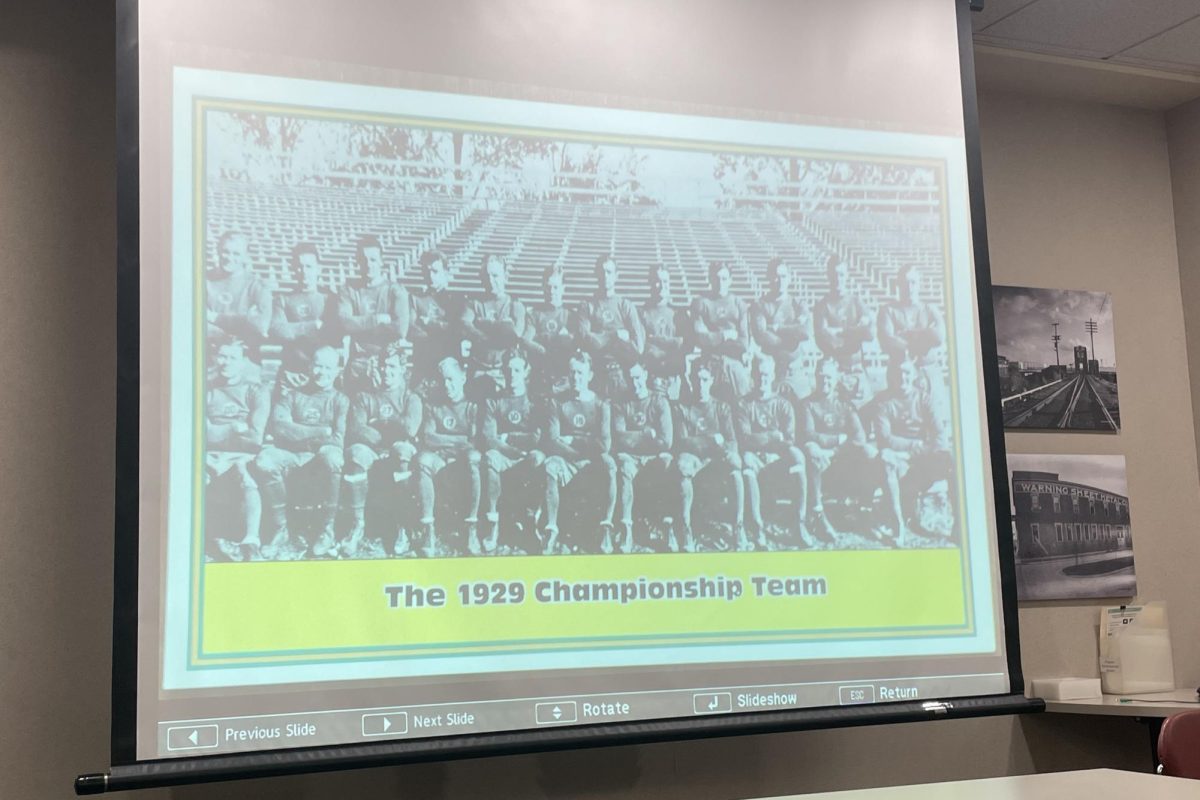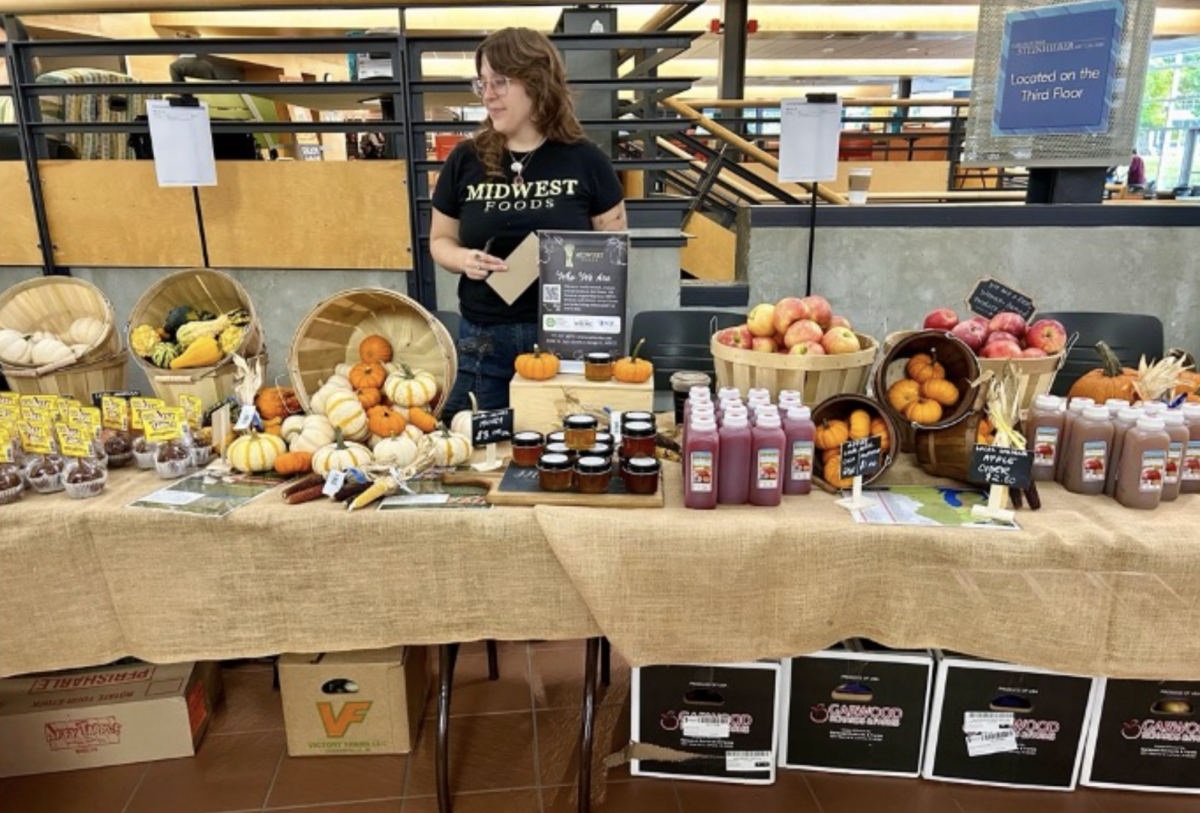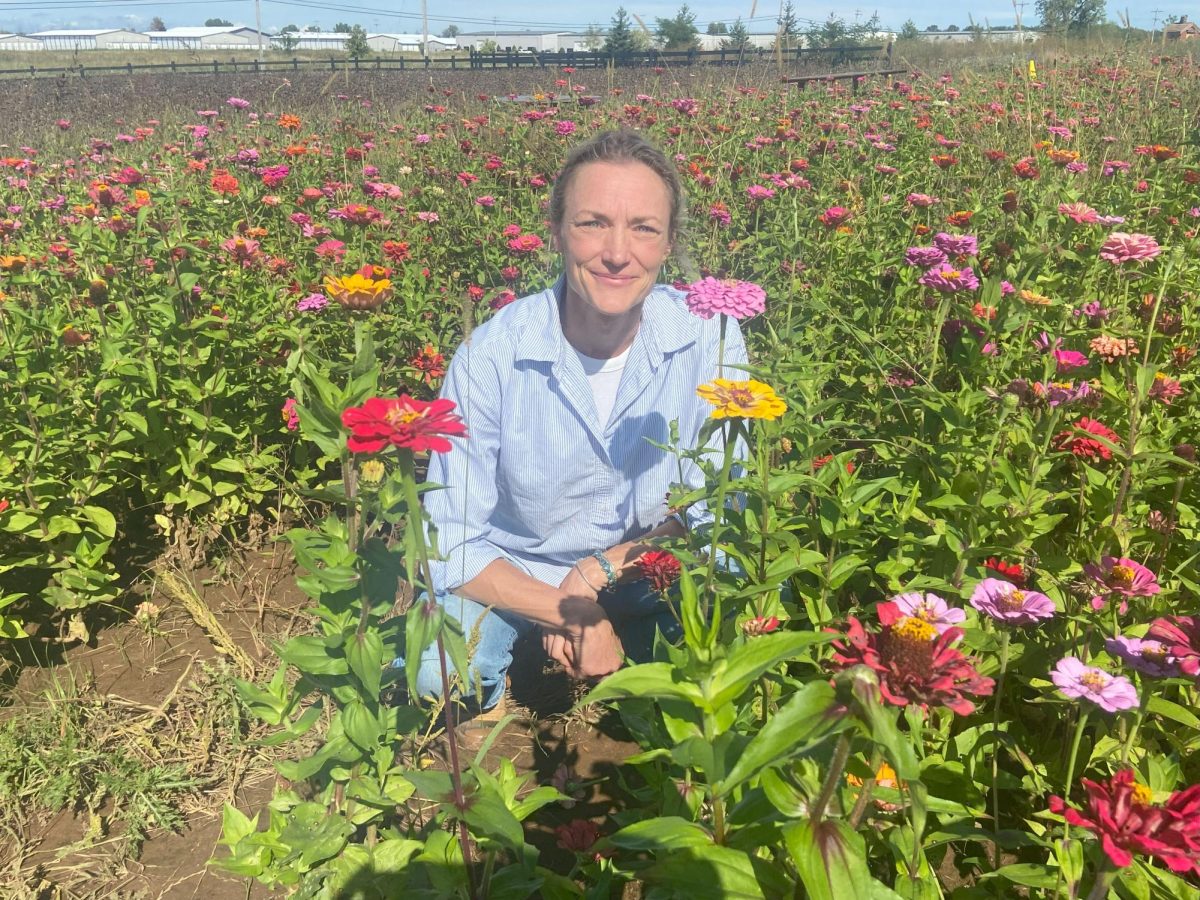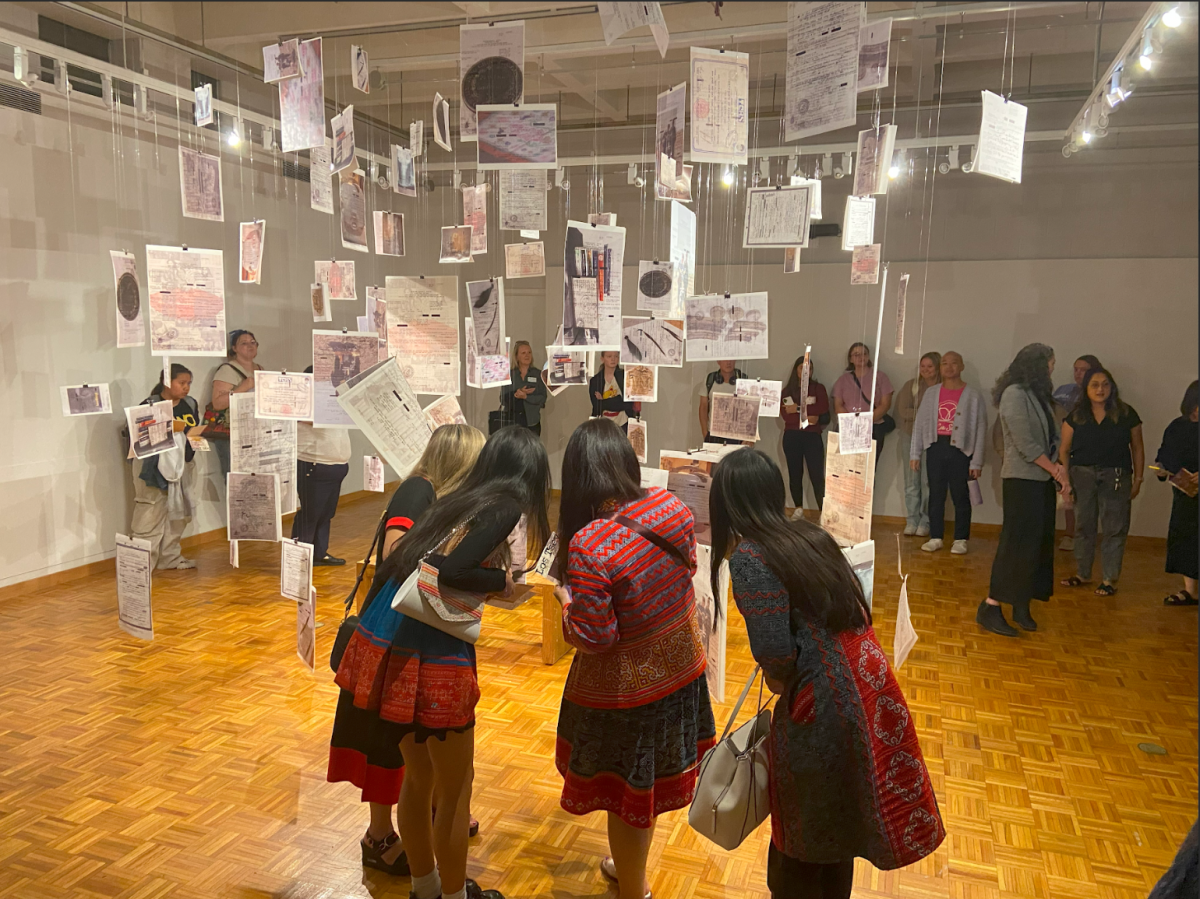“The blond hair looked like a beehive atop Verna Hornburg’s head,” begins a story in the Feb. 25, 1981 issue of the Oshkosh Northwestern newspaper.
The story explains the side gig of a banking agent named Verna Butt, then Verna Hornburg, who stumbled into performing sets impersonating the TV character Florence Jean “Flo” Castleberry from the 1980s comedy series “Flo.”
“Well kiss mah grits, honey,” she says to the audience in a Southern drawl — a trademark one-liner of the character she’s impersonating.
More than 40 years later, Verna has left the world of entertainment and work altogether, residing at Miravida Living in Oshkosh, a senior living facility working to build the same sense of community that Verna and others experienced throughout their lives.
A 2023 West Health and Gallup survey found that 70% of surveyed Americans considered the idea of needing to live in a nursing home uncomfortable. Additionally, more than 40% of Americans believe that nursing homes aren’t safe.
Assisted living facilities, including nursing homes, are stigmatized in a variety of ways. One such trope considers them a place of isolation where residents rarely see their loved ones.
Another stigma suggests that these places’ residents receive an inhumane lack of attention and individual care.
While individual instances showcasing this pop up from time to time, by and large, the residents in these facilities, many of whom possess a treasure trove of rich stories, often form tightly knit communities with their fellow residents and staff.
Miravida Living is a prime example of a community trying to crack these stereotypes.
In 1963, 13 Lutheran churches amassed to establish Miravida Living, then named Lutheran Homes of Oshkosh, Inc.
Over the following decades, more buildings were constructed, including senior apartments in 1972 and a condo-style residence building in 1985. A rehabilitation-focused building, named Eden Meadows, was the most recent addition, opening in 2010. But it’s the decades-older 1985 residence building, named the Carmel Residence, where Verna resides.
Walking through the main entrance, one is greeted by the feel of a newly-renovated hotel lobby: A front receptionist desk sits adjacent to a couch and a flock of chairs by a fireplace.
Stereotypical hotel-style carpeting leads guests and residents down the first floor wing of rooms, and, in the other direction is the large dining room, containing spates of square, four-person tables, a beverage station with a soda fountain and a black, upright piano.
On the second floor is Verna’s room. It was originally a two-bedroom suite, but at her request, Miravida knocked down one of the walls to expand the room.
Her room is homely, with a decorative wooden clock placed atop a hanging wall shelf. Tapestries cover her living room side tables, and on one of the tables rests a book of crossword puzzles.
Her living room features a couch, rocking chair and a TV atop a stand on the wall facing the window, where Verna has a birdfeeder. Sometimes, midway through a conversation, she’d pause to listen to a bird chirp, quickly identifying the type of bird.
Then there is Verna, who’s in her 80s, sporting a white pixie cut and perfectly straight white teeth. She needs a cane to walk but is otherwise fully self-sufficient.
Her appearance had become less important to her as she aged. Rather, she said she cares more about people.
Verna grew up on a farm in Clintonville, where her family mostly sustained themselves. They raised animals for meat, collected fresh eggs from their chickens and grew and canned a variety of fruits and vegetables.
“People just don’t know how to do that anymore,” she said.
What the family couldn’t produce themselves, such as flour and sugar, were purchased from the store, with ration books being utilized during wartime.
The same sense of community she experiences at Miravida characterized her childhood when she and her family would work together with other farmers.
“When it was time to do corn, for example, if somebody had a good corn picker, they would go to different farms and pick their corn,” she said. “So as a child — I was about 6 years old, 5 years old — it was always fun because my mom would make a big meal at noon and all the helpers — whether it was corn picking, whether it was cutting, doing straw and wheat and and grain and thrashing — they’d all come in for dinner.”
She said she loved participating with her neighbors in any way that she could.
“I was the lemonade girl,” she said. “Mom would maybe make some cookies as a treat, so I’d take them out for a break for the farmers that were working during the day. … That’s how the farmers got their crops in — by sharing these equipment things.”
She said that one night during a powerful thunderstorm, her family received a phone call that the neighbor’s barn had caught on fire. Her family immediately jumped to action.
“We all got in the car,” she said. “We all drove down there and mom and I stayed and helped with the wives making sandwiches and stuff for the firemen. Everybody worked together and saved what they could. … That’s what I loved about growing up on a farm: The kind nature of your neighbor.”
Whether they were celebrating parties, graduations, anniversaries or birthdays, she said that everyone was invited.
Verna moved to Appleton to pursue a career in banking after graduating from high school, living in an apartment with four other people.
She moved to Oshkosh and found a banking job taking sales calls from car dealers.
“The car dealer would call me at the bank, and I’d have to type [a person’s information] into a teletype machine,” she said, motioning the size of the machine with her arms. “All of a sudden, an hour later, a [credit report] comes out.”
She also worked in customer service, as a teller and in a whole slew of other jobs while at the bank, eventually switching to the insurance industry, becoming one of the first female insurance agents for her company.
Verna left the insurance business to go back to banking before she retired. She moved to Miravida in 2019.
“The people around here keep you laughing,” she said. “And when you don’t feel good, they’re caring.”
Verna’s next-door neighbor, Clair Kentopp, has been involved with Miravida since its inception.
“I was part of the fundraising,” he said. “Our church had announced that there would be a gathering of people to hear about the possibility of a group home. I recall making house calls asking people if they would be interested in contributing to this.”
Clair grew up in Omro and would spend time during the summer at his aunt and uncle’s farm in Wautoma.
“It was all done with horses, it wasn’t the modern farmers that we know today,” he said.
After graduating from high school in 1956, he went to college in Chicago. The bigger city had an impact on him, he said, including converting him to a Chicago Cubs baseball fan.
“When you grow up in a little town like Omro, and you go to a city like Chicago, it’s a different world,” he said.
Like Verna, he worked in banking before moving to insurance. He started his job at the bank while in Chicago but moved to Oshkosh after a couple of years.
“I was the collection manager,” he said. “I went out and chased after people that didn’t pay their debt. I was shot at twice. My family was under police protection a couple of times.”
After retirement and a stint in Ohio, Clair moved in to Miravida in 2018 with his wife.
One of the features he likes about Miravida is its underground parking.
“[It] may not seem important, but no one wants to sweep a foot of snow off their car and hope that it’ll start,” he said.
Flo Withers, a 93-year-old resident, moved to Miravida three years ago.
She grew up in Redgranite with nine siblings under conditions very different from those common nowadays.
“I grew up without running water, electricity or central heating” she said. “We had to build a wood fire in the stove and cooked with a wood kitchen stove.”
She said she appreciates the sense of community she experiences at Miravida. She said she had a note on her door asking to not receive any birthday cards.
“I got 30 of them total,” she said.
Residents at Miravida are always willing to chat, something she said she notices while solving puzzles in communal areas.
“People that are walking around will sit and talk for 15, 20 minutes,” she said. “That’s one of the things that sold me [on Miravida] … the activities.”
Another resident, Sandy Kritz, said there’s always game nights and something to do. She said that a group of ukulele players stopped by for Halloween.
“We play dominoes on Monday nights, there’s king’s corners on Friday nights, there’s sheepshead,” she said. “We’ll put the TV on in the cafeteria and bring snacks. … [We’ll] watch the Packers games on Sundays.”
She decided to move to Miravida about two years ago after taking care of her own home became too much to ask.
Sandy said she’s been in Oshkosh her whole life and was living only a few blocks away before deciding to make the move.
“[Miravida] was the only place I really looked at, because it’s friendly,” she said. “It’s better than sitting home lonely. I love it here.”
Beyond entertainment, though, Miravida residents help each other out.
Clair emptied out a section of the garage and turned it into a workshop kitted out with his own tools.
“I spend quite a bit of my time down there, as my wife would say, making sawdust,” he said.
He said he crafts furniture for residents, including a bookshelf for one lady and an apparatus for Verna to help keep her things organized.
Currently, he said he’s working on a table for his grandson.
“We are a community,” he said. “We do everything that anybody else does anywhere in the city. We have entertainment and comradery.”
One of the ways residents build community is through worship services, which are hosted on the Miravida campus.
Karin Dereene is the director of spiritual services and one of three chaplains. She worked in chaplaincy for decades before joining Miravida in July 2023 and received a gerontology degree in college.
“I was interested in having a good amount of time with our elders to learn to understand how they look at things at this juncture in their lives,” she said. “I always feel a lot of pull to conversations with elders, learning from them about their lives and how they’ve [dealt with] the great joys but also their challenges, and how they make meaning out of those things.”
Her role does not end after the church service. Connecting individually with the residents is also a part of her role at Miravida, she said
“I think that sometimes people put religion into a box of a church or a certain practice, and spiritual care really looks at how we tend to the meaning and purpose of the people we serve,” she said. “For some people that really does fall in line with having worship services, Bible studies, hymn sings and engaging in their faith traditions. For other people, it’s a lot of talking about whatever they used to do in their lives — their career, or where they lived, or spending time in nature.”
Dereene said that building a sense of community involves relationships and, as a chaplain, she is attuned to understanding the residents.
“When you come to a community like this, you leave a community in some way,” she said. “If you’re someone who likes to hike, and then you become an elder in a community someday, realizing you might be limited as to how much you can go hike or do the things you love, there might be other ways we can connect to that,” she said. “Maybe through conversation or even bringing in a speaker, or connecting with websites or movies.”
Connecting with residents is a part of being a Miravida staff member, Julie Maslowski, the director of senior living at Miravida, said. She worked in assisted living before joining Miravida in February 2023, but she said she fell in love with the environment at Miravida.
“I liked Miravida because of the nonprofit aspect of it,” she said. “From a for-profit world to a nonprofit, it was a major shift. In for-profit, it was all about … the numbers game, whereas at Miravida, it’s really about patient care.”
The environment allows ideas to come to fruition more easily because there’s less red tape, Maslowski said. This type of environment also fosters a strong sense of community among staff members.
“It truly is like a family,” she said. “Some of these people have been there for 30 years. They choose to stay with Miravida because the family feel of it. They feel like they have a say in it. They’re heard.”
This sense of community extends to staff members and residents, too. Maslowski said that a new Miravida resident was concerned that she would no longer be able to make her pistachio bread, which she gifts to friends and family during Christmas. Miravida helped her out.
“[The resident and Miravida staff] made 60 loaves of pistachio bread, so she could still carry out those traditions she had at home,” Maslowski said.
A different couple at Miravida were celebrating what would become their last anniversary. She said that the staff organized a private meal with music for the couple to recognize the occasion. Maslowski said that she wants her staff to make residents the focus.
“I want to challenge [my staff] to be better than they were the day before,” she said. “Learning those little things about your residents. … [They] have stories to tell and to get them to open up and share with you, I think that’s a compliment and an honor — to be a person that gets to hear these stories.”
Not to leave her performing days in the past, Verna said she emceed for one of the programs at Miravida, where she joked around with the crowd.
“I began by saying that, ‘maintenance here wants me to ask you when you use the bathroom, do you fold your toilet paper or do you crunch it?’” she said. “Everybody’s talking to each other like, ‘What the hell is she talking about?’ I heard later that someone said, ‘Why would maintenance want to know that?’ She believed what I said.”
Verna said that these types of events help foster a happier, more lighthearted environment for everyone.
“To stand up in front of a group of people and get them laughing — they’re forgetting about their troubles, their health — and they look at you like, ‘What’s coming next?’” she said. “It warms them up.”









